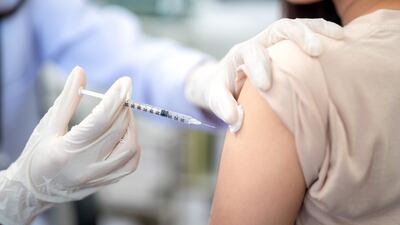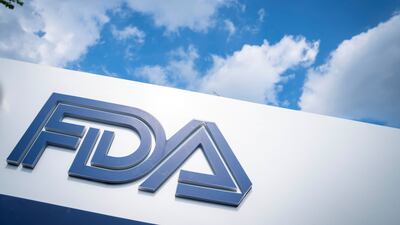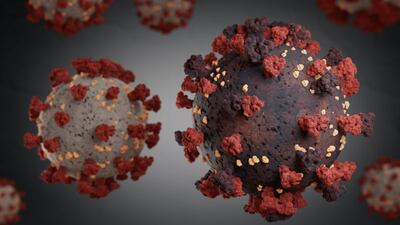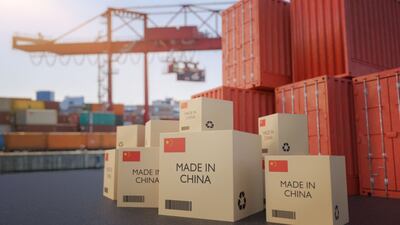Coronavirus COVID-19
Revised recommendation is based on most recent data on circulating strains in US, where KP.3 is now dominant. Novavax sticks with plans targeting the JN.1 ‘parent strain.’
Avoiding disaster at the beginning of the pandemic and offering a pro-active supply chain blueprint should position the generics industry well for an onshoring debate in Congress, but a look back at March 2020 is a reminder that even small policy shifts can have a big impact.
Latvia’s Olainfarm has set out details of a five-year strategy called ‘Forward 2020-2025’ that it anticipates will “make internal processes more effective for sustainable growth.” While laying out its forecast for 2021, the company said that it has planned “significant investments for research and development, as well as the acquisition of products and modernization and digitalization.”
To tackle the increase in demand for remdesivir in India amidst the second wave of COVID-19, Gilead Sciences is helping local licensees to scale up production of the product, including by providing API supplies. The company is also donating at least 450,000 vials of the Veklury brand “to help address the immediate needs of Indian patients.”
Hikma CEO Siggi Olafsson has outlined the potential future opportunity that the firm sees in the US biosimilars market, in the second part of an exclusive interview with Generics Bulletin.
Bangladesh’s Beximco reported double-digit growth both domestically and abroad in its financial first half, while continuing to expand in other international markets. Given its new launches and a COVID-19 vaccine distribution deal, the company remains optimistic about its future performance.
Medicines for Europe has highlighted the need for an improved digital strategy across the EU in order to improve patient information and access to medicines, among other benefits like reducing the risk of supply disruptions, especially in the context of the current pandemic.
Pfizer/BioNTech and Moderna rapidly adapted Comirnaty and Spikevax for the 2024-2025 season to address the KP.2 variant after the US FDA had advised them to target JN.1 in June.
The companies said their combination mRNA vaccine showed protection against SARS-CoV-2 and influenza A, but not influenza B.
The FDA designated class II special controls classifications for two diagnostics and force separation catheters.
Request to recall eye drops should be fulfilled promptly and businesses providing lip balms as promotional products must verify contract manufacturers are compliant, recent FDA warnings states. Additional letters went to Jordanian firm about testing alcohol for methane and to a Chinese firm advised that compliance with China’s quality control standards isn’t sufficient.
Targeting the JN.1 subvariant of the SARS-CoV-2 virus will facilitate timely vaccination campaigns in Europe to help reduce the burden of disease associated with COVID-19, according to the EU regulator.
FDA reminds companies which registered with agency solely to manufacture OTC sanitizers during COVID-19 public health emergency they will be subject to FY2025 OTC monograph user fees if they don’t delist and deregister as monograph drug manufacturers by 12 a.m. on 31 December.
AstraZeneca’s sipavibart for preventing COVID-19 in the highly vulnerable population of immunocompromised patients is among the latest drugs that the European Medicines Agency has started to review for potential pan-EU marketing authorization.
The UK giant’s COVID-19 prophylactic sipavibart could soon reach Europe and competition is sparse.
The EMA is proposing to update its two previous guidelines on COVID-19 vaccines to offer consolidated advice on the non-clinical and clinical development of new SARS-CoV-2 or related sarbecovirus vaccines.
The CDC's Advisory Committee on Immunization Practices voted for a universal COVID-19 vaccine recommendation for 2024-2025, but said the decision would have been easier with a lower-cost product.
When life hands a biotech company the equivalent of good grapes, the expectations are for its products to be the equivalent of fine wine. Before that Moderna looks likely to make lemonade.
A new round of tariffs imposed by the Biden administration on various Chinese goods, including medical devices, points to a broader shift in US strategy for strengthening supply chains and ensuring Americans have reliable access to safe products, according to analysts who spoke to Medtech Insight about the tariffs. While fueled by the pandemic, the momentum pushing this change in trade policy has been growing for some time.
Executives at recent investor conference offer explanations of what’s happened to sales of the brands in addition to describing the strategies and decisions which have driven company-wide average 6.3% annual net sales growth over the past 10 years.
ADVERTISEMENT

















